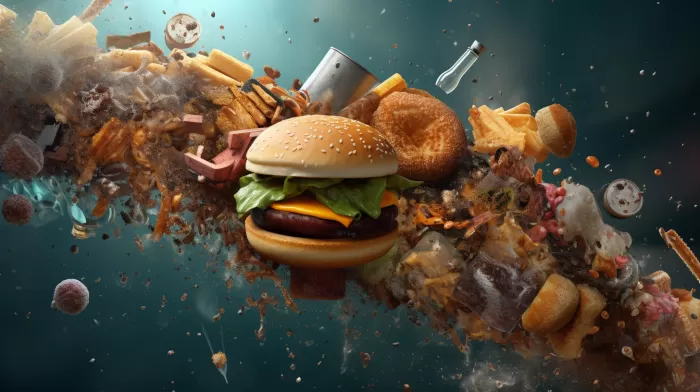Think about your dinner plate today. There’s a good chance it’s going to be filled with mouthwatering dishes that will satisfy your taste buds. But have you ever thought about the contaminants lurking in your favorite meals? And how about those dangers these toxins pose to your health when combined with greasy, high-sugar junk food? You might be surprised to discover just how dangerous this combination is…
Stubborn Toxins in Your Food
French researchers from the National Institute of Health and Medical Research ran a series of lab tests on junk food mixed with small amounts of dioxin, PCB, bisphenol A (BPA), and phthalates. As it turns out, all four of these toxins can be found in your meals. Even worse, they’re also likely present in your bloodstream.
PCBs may have been banned in the 1970s due to their hazardous nature, but they’re still penetrating the food chain and the environment. They were once used in electronic transformers and are almost impossible to remove from the environment. Dioxin is another toxin you don’t want on your plate. It’s present in air pollution and animal feed, making its way into your system through meat and dairy products.
BPA is no stranger either. It’s typically found in the lining of food cans and aluminum beverage cans. As for phthalates, they’re lurking in fragrances, personal care products like shampoos, and PVC plastic. Didn’t know that new car smell comes from inhaling phthalates? Well, now you do.
The Dangerous Mix: Greasy Junk Food and Toxins
The French researchers found that these toxins, when combined with a high-calorie diet, escalate metabolic problems. Consequently, this increases the risk for high blood pressure and heart disease. It can also worsen glucose intolerance and impair estrogen regulation.
What’s more alarming is that these metabolic issues are worse in women than men. Brigitte Le Magueresse Battistoni, one of the researchers, attests, “We have succeeded in providing proof-of-concept that low doses of contaminants, even at levels normally considered to be without health impacts in humans, do in fact affect humans when subjected to chronic exposure, and when the contaminants are combined with a high-calorie diet.”
If this doesn’t turn your stomach, just think about the long-term risks associated with this combination of toxins and an unhealthy diet.
Breaking Free from These Toxins
Fortunately, there are some easy steps you can follow to minimize the ingestion of these hyped-up pollutants:
- Opt for organic meat. Purchasing organic meat from grass-fed animals is not only beneficial for your health but also beneficial for the environment. Organic farms tend to have a smaller carbon footprint and promote sustainable farming practices.
-
Load up on fruits and veggies. Adding more fruits and vegetables to your diet can help reduce the risk of a range of diseases, including heart disease and cancer. Many fruits and vegetables also have natural detoxifying properties, helping to rid your body of the unwanted chemicals and toxins found in food.
-
Avoid processed foods. Processed foods are teeming with these harmful substances. Switching to a whole-foods diet focused on natural and minimally processed foods not only cuts out toxins, but it also provides a host of essential nutrients that promote good health.
-
Choose safe storage containers. Swap out plastic food storage containers for glass ones and make sure you’re using BPA-free products like water bottles and baby bottles. Additionally, skip the canned foods aisle and opt for fresh, whole foods to reduce your BPA exposure.
-
Be smart about fish. Fish can be an excellent addition to your diet, but some species are more prone to contamination with mercury and other toxins. Opt for smaller fish like sardines and anchovies, or go for wild-caught salmon, which is less likely to have accumulated toxins.
-
Filter your water. Investing in a high-quality water filter is an effective way to remove contaminants from your drinking water. This is also an eco-friendly solution and can save you money in the long run compared to buying bottled water.
-
Practice safe disposal. Be mindful about disposing of household chemicals, paint, and electronics that can leach toxins into the environment. Visit your local recycling center or hazardous waste facility for guidance on how to safely discard these items.
With a few simple changes to your lifestyle and diet, you can help protect your health from the dangers of these common contaminants. So next time you grab a plate filled with your favorite meals, consider what changes you could make to ensure it’s healthier and toxin-free.



